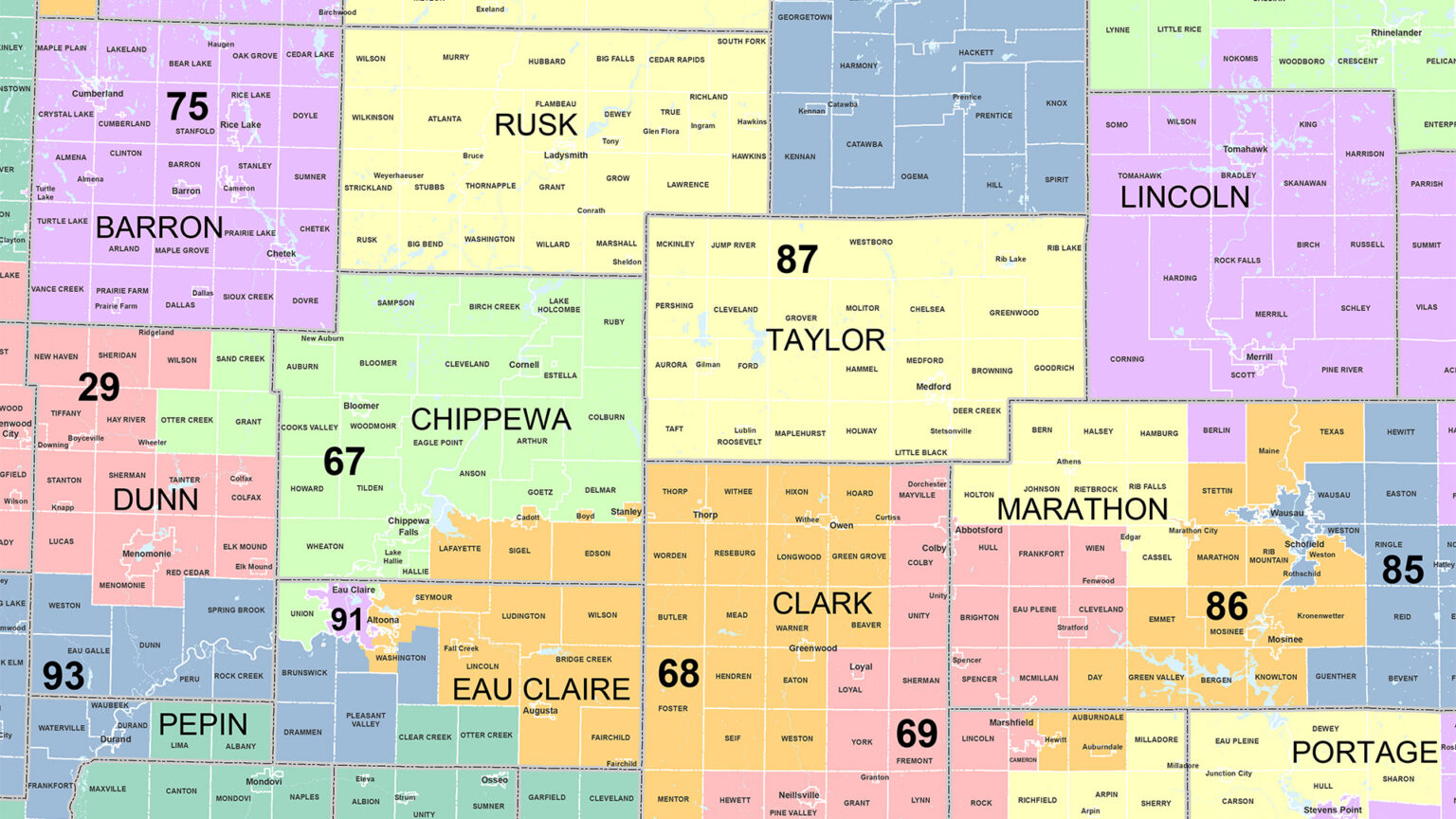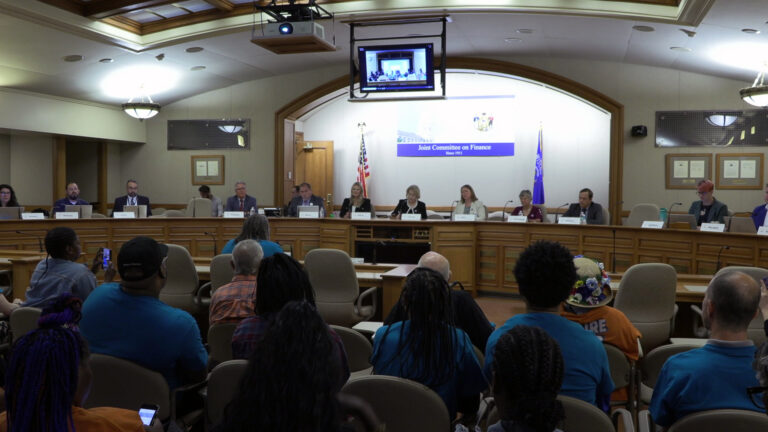Wisconsin redistricting consultants can recommend changes to submitted maps or draft their own
Two consultants were hired to analyze new legislative district maps for the state submitted to the Wisconsin Supreme Court by the Legislature, Gov. Tony Evers and others, and will report back on their findings.
Associated Press
January 4, 2024

A map shows a portion of the Wisconsin Assembly districts in place over the course of 2023. The Wisconsin Supreme Court ruled on Dec. 22, 2023 that the state's legislative districts were unconstitutional and ordered the creation of new maps, and has hired two consultants to analyze new maps submitted to the high court or create their own new maps. (Source: Wisconsin Legislative Technology Services Bureau)

MADISON, Wis. (AP) — Two consultants hired to analyze new legislative boundary lines in Wisconsin after the state’s Supreme Court tossed out current Republican-drawn maps will be paid up to $100,000 each under terms of their contracts made public on Jan. 4.
Each consultant will be paid an hourly rate of $450, up to $100,000 total, but the state director of courts has the authority to exceed the maximum amount if she determines it is necessary, according to the contracts. The costs will be paid by the parties in the case, which include private attorneys and those who are funded by taxpayers.
Republican lawmakers in 2023 signed contracts with attorneys who could receive more than $1.8 million in taxpayer funds to defend the current maps. Attorneys for Democratic Gov. Tony Evers and Democratic lawmakers are also taxpayer-funded.
Wisconsin is one of more than a dozen states currently wrestling with challenges to redistricting maps that were redrawn following the release of the 2020 U.S. census and first applied to the 2022 elections. Court challenges could result in new U.S. House and state legislative maps before the November election.
In Wisconsin, the court in December 2023 ruled that the current legislative maps are unconstitutional because many districts aren’t contiguous. The court ordered that either the Legislature pass new maps that Democratic Gov. Tony Evers is willing to sign into law, or the court will proceed with adopting its own map.
The consultants were hired to analyze maps submitted to the court by the Legislature, Evers and others, and report back on their findings.
The consultants — who have the authority to recommend changes to the submitted maps or to create their own — have had a hand in reshaping districts in other states.
Jonathan Cervas, of Carnegie Mellon University in Pittsburgh, redrew New York’s congressional and state Senate maps after a court struck down ones adopted by the Democratic-led Legislature. Bernard Grofman, of the University of California, Irvine, helped redraw Virginia’s federal and state legislative districts after a bipartisan commission deadlocked.
Conservative justices also objected to the hiring of the consultants, saying their selection, the legal authority to appoint them and their responsibilities all raise serious questions.
The maps from parties to the lawsuit are due by Jan. 12, with supporting arguments due 10 days later. Reports from the consultants are due by Feb. 1, with responses a week later. That means the court will release new maps likely sometime in late February or early March unless the Legislature acts first.
The state elections commission has said maps must be in place by March 15 if the new districts are to be in play for the November election.
Republican lawmakers on Dec. 29 asked the Wisconsin Supreme Court to stay and reconsider its 4-3 ruling throwing out the GOP-drawn maps. Jan. 4 was the deadline for parties to the lawsuit to submit their arguments.
The court is unlikely to reverse its ruling. The liberal four-justice majority voted in favor of ordering new maps, with the three conservative justices dissenting.
The legislative electoral maps drawn by the Legislature in 2011 cemented the Republican Party’s majorities, which now stand at 64-35 in the Assembly and 22-11 — a supermajority — in the Senate.
 Passport
Passport











Follow Us